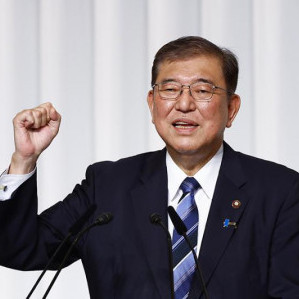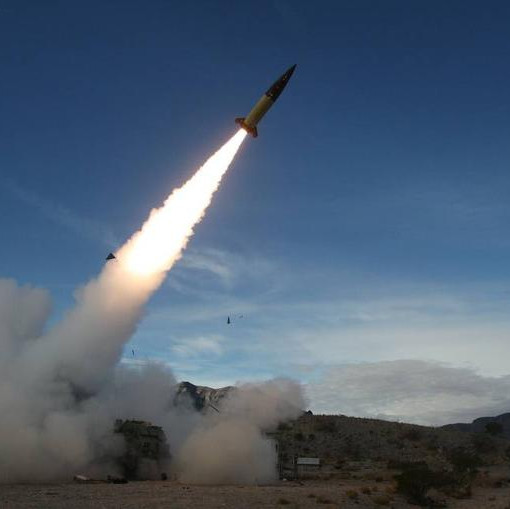Top stories from the Russian press on Friday, December 10th, prepared by TASS
Kommersant: What happens in relations between Moscow and the West after presidential summit
While the Russian-US summit did not bring an agreement, it did launch negotiations on security in the Euro-Atlantic. The parties focused on the activities of NATO in the post-Soviet space - primarily in Ukraine. After so many years of sanctions and diplomatic wars, this was not enough, Kommersant writes, noting that, however, the latest initiatives of US President Joe Biden showed - the West, previously intransigent in its attitude to Russia, could possibly be ready for compromise.
Moscow and Washington did not hide the fact that the issue of Ukraine dominated the summit. After the talks between the presidents, the atmosphere seemed to have defused a little, the newspaper writes. Chair of Asia-Pacific programs at the Carnegie Moscow Center Alexander Gabuev told the newspaper, "The fact that the presidents talked is a temporary outcome and respite. But it does not give guarantees against hostilities."
Diplomatic sources confirmed to Kommersant, that the US will join the settlement of the conflict in eastern Ukraine, but not within the framework of the Normandy format (Germany, Russia, Ukraine, France) - most likely through "shuttle diplomacy."
Joe Biden has also already announced a summit meeting involving Russia, the United States, and at least four of Washington's NATO allies. This shows that the parties are preparing for serious negotiations on issues that have been worrying them for a long time, but there are few specifics so far, Kommersant writes.
"The US said they were ready to seriously discuss Russia’s concerns about military risks on the western borders. This is already a big step forward because earlier the idea that Russia might have concerns and that they should and could be discussed was generally swept aside," Alexander Gabuev said.
"In other words, this is a clear step towards Russia’s position. However, this will be relevant if whatever Biden said is really being prepared and will happen," Research Director of the Foundation for Development and Support of the Valdai Discussion Club Fyodor Lukyanov told Kommersant.
Izvestia: EU discusses plans to return mission to Afghanistan
The return of the EU mission to Kabul is currently being reviewed by European institutions, the French Foreign Ministry told Izvestia. At the same time, it was noted that recognizing the Taliban movement (outlawed in Russia) is out of the question. The Dutch Foreign Ministry told Izvestia that they maintain contacts on this issue with international partners, including both EU members and the UK. At the same time, the department stressed that any presence of a European mission in Afghanistan will depend on the security situation.
Experts told the newspaper that both sides are interested in returning representatives of the EU to Kabul - the Taliban hope sooner or later to achieve international recognition, and the EU needs to maintain an element of control in the region. "We witnessed panic after the Taliban came to power when the Western powers successfully evacuated their diplomatic missions. The Taliban, of course, have not changed since then, but negotiations are underway, which both sides have an interest in. The Taliban still hope for international recognition. The EU understands that in order to monitor the situation in Afghanistan and provide international assistance, a diplomatic presence is needed," Senior researcher at the Institute of Oriental Studies of the Russian Academy of Sciences Vladimir Sotnikov explained to Izvestia.
Political scientist Azhdar Kurtov told the newspaper that the return of European diplomats is quite possible, since the previous authorities in Kabul, although they were considered pro-Western, were also very far from the values of liberal democracy.
Meanwhile, despite the change of power in Kabul, Russia did not curtail the work of its diplomatic mission. Russian Ambassador to the country Dmitry Zhirnov said earlier in an interview with Izvestia, Moscow provides humanitarian assistance to the Afghan population.
Izvestia: What Biden promised Zelensky and what can Donbass expect
Despite the talks between US President Joe Biden and the leaders of Russia and Ukraine Vladimir Putin and Vladimir Zelensky, it has not yet been possible to achieve de-escalation in Donbass. Representatives of the self-proclaimed Luhansk People's Republic told Izvestia that an extraordinary meeting of the contact group aimed at strengthening the ceasefire ended without a result.
On December 9, two days after the video summit of Vladimir Putin and Joe Biden, the US president finally spoke with his Ukrainian counterpart Vladimir Zelensky. Biden promised to provide Ukraine with assistance in the event of aggressive actions from Russia. The US also decided to be an active participant in the process of resolving the situation in the Southeast - possibly simultaneously with the Normandy format.
It looks like the talks between Presidents Biden and Putin have eased the fears of an armed conflict - at least in Washington, Valdai Club expert Richard Weitz told Izvestia. In the coming months there could be an intensive bilateral and multilateral dialogue on the Ukrainian issue, the expert added.
Before the talks, there was hope that the direct participants in the conflict would be able to reduce the degree of escalation - but the recent meeting of the Trilateral Contact Group ended with no result, Izvestia writes. "Ukraine does not want the full-fledged work of the Joint Center for Control and Coordination (JCCC) of the ceasefire regime, which is entrusted with the function of communication and verification," a representative of the LPR in the contact group Rodion Miroshnik told Izvestia.
Thus, there is still no real de-escalation, the newspaper writes. Moreover, on December 9 spokesperson for the Russian Foreign Ministry Maria Zakharova said that Kiev was transferring heavy weapons to the east.
Kommersant: Russian Direct Investment Fund to improve Russia's position on pharmaceutical markets
The investments of the Russian Direct Investment Fund (RDIF) in the Russian economy over the decade of its existence have exceeded 2.1 trillion rubles ($28.49 bln). Since 2011, the fund has become one of the most important institutions for attracting foreign direct investment to Russia. Since 2020, RDIF has been busy with the Sputnik V vaccine project. Now the Fund plans to look into searching for new international partners and improve Russia's position on foreign pharmaceutical markets, CEO of the Fund Kirill Dmitriev said in an interview with Kommersant.
"Our goal is to implement a long-term strategy. We need scores of investors around the world to understand that you can make good profits in Russia, and then they will be interested in the whole range of opportunities … both in infrastructure and in high-tech projects, where the profitability is even higher," he said.
As for the Fund’s own plant, it’s "always interested in infrastructure and technologies: infrastructure is important and it is reliable, technology is an opportunity for rapid growth, breakthrough solutions for many industries. We are now especially focused on the agricultural sector."
Talking about the breakthrough project, Sputnik V, Dmitriev noted that when the COVID-19 pandemic started, RDIF took on significant risks. "But we succeeded: we returned funds with normal profitability and at the same time saw what the pharmaceutical industry is in the world. It was a very rewarding, albeit often very unpleasant experience," he said.
Export sales of Sputnik are now more than double the entire annual exports of all Russian drugs, Dmitriev added. "We intend to radically improve Russia's position on foreign pharmaceutical markets, including by supporting our pharmaceutical manufacturers. We know how the barrier works, created by six big pharma companies in the world markets," he added.
In terms of international expansion, RDIF will focus on Latin America. "Russia's relations have sharply strengthened with all countries in the region, including Mexico -Sputnik will even be produced there to supply the entire region," Dmitriev said.
Nezavisimaya Gazeta: Russia will not be able to isolate from global inflation
November US inflation data will be released on Friday - the annual growth in prices is expected to accelerate to 6.7% against 6.2% in October. This will be record inflation since 1982, US analysts predict. Whether Russia will be able to counter this global trend through isolation and export restrictions is a big question, Nezavisimaya Gazeta writes.
The Russian authorities are trying to isolate themselves from the rise in world prices through various export restrictions. However, the growth of prices in Russia is still accelerating. Annual inflation in November rose to 8.4% against 8.1% in October. In an effort to contain prices, the Russian authorities are raising the cost of loans and restricting exports - from grain and sunflower seeds to scrap metal and timber. However, many experts question the long-term effectiveness of such measures.
"Export restrictions are a double-edged sword. It can give a short-term surplus of supply within the country, but at the same time lose the share of the external market," Head of FBK Strategic Analysis Institute Igor Nikolaev told the newspaper. Russia would not be able to resist external trends for a long time, the expert believes. Global rise in prices could be the result of overcoming the pandemic, which coincided with the initial phase of the energy transition to a low-carbon economy, he added.
Defeating inflation within a single country is generally possible, Deputy Director of Analytical Department at Alpari Group Natalya Milchakova told the newspaper. She considers financial dampers to be a functional anti-inflationary mechanism, which, in particular, restrain the growth of prices for oil products.









